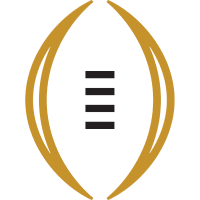- cross-posted to:
- hockey
- nfl
- nba
- baseball
- cfb@lemmy.world
- cross-posted to:
- hockey
- nfl
- nba
- baseball
- cfb@lemmy.world
Colleges
- Is sports gambling allowed? Mostly no. Gambling on any sport sponsored by the NCAA at any level (pro, college, youth) is prohibited. Gambling on sports such as horse racing, boxing, MMA or cricket is allowed.
- Who does this apply to? It applies to student-athletes, coaches, administrators and officials.
- Where is sports gambling allowed? NCAA rules do not govern where an activity takes place; however, there could be institutional or conference policies that outline time, place and manner restrictions.
- Does this include any wager? Putting something at risk to win something in return (even if for less than $1) on a pro, college or amateur sporting event is a sports wagering violation that risks eligibility.
- Does this include Super Bowl squares, NCAA tournament brackets or fantasy sports? Yes, if a sport is sponsored by the NCAA, no matter the wager, it is off-limits.
- Are athletes required to sign a statement acknowledging gambling rules? Yes, the NCAA requires student-athletes to annually sign a document known as the NCAA Student-Athlete Statement. That statement covers the NCAA’s eligibility rules from gambling to drug testing.
- What are the punishments? When a school discovers an NCAA rules violation has occurred, it must declare the prospective or enrolled student-athlete ineligible and may request their eligibility be reinstated through the Requests/Self Reports Online (RSRO) system. The Student-Athlete Reinstatement (SAR) staff reviews each request individually based on its own merits and set of specific facts.
- A recent example would be Virginia Tech linebacker Alan Tisdale, who received a nine-game suspension in 2022 (it was later reduced to six games) after self-reporting that he used an online gambling app to bet on the NBA Finals. For athletics personnel, violations are evaluated on a case-by-case basis. For officials during regular-season competition, matters of eligibility are determined at the conference level.
- College athletes who engage in wagering activities that influence the outcomes of their own sports can lose their eligibility permanently, while those who engage in wagering activities for the same sport but involving a different school can lose 50% of one season of eligibility. For other wagering violations, including wagering on pro sports, the total dollar amounts involved would be considered to determine punishment and reinstatement. Those wagering $200 or less would only be subject to sports wagering rules and prevention education, while wagers between $201-$800 could cost athletes 10-20% of a season of eligibility. Wagers greater than $800 could cost 30% of a season of eligibility, while those involved in wagers that “greatly exceed $800” could be subject to additional eligibility penalties, including permanent eligibility loss.
- Postseason officials are screened for gambling or sports wagering. The screening process is a comprehensive background check that includes the review of any criminal charge(s) or conviction(s) with elements of deception (e.g. identity theft, fraud, forgery, uttering, embezzlement) and/or criminal charge(s) or conviction (s) involving gambling or sports wagering — these are flagged and may cause an official to be ineligible. Information found in the screening is also used to evaluate potential risk.
- How are they catching offenders? The NCAA works with an integrity monitoring service that tracks, flags and analyzes betting data. That strategy includes a periodic assessment of wagering on all competitions — and an immediate notification if there is suspicious wagering - and utilizes proprietary intelligence and investigation services.
You must log in or register to comment.

